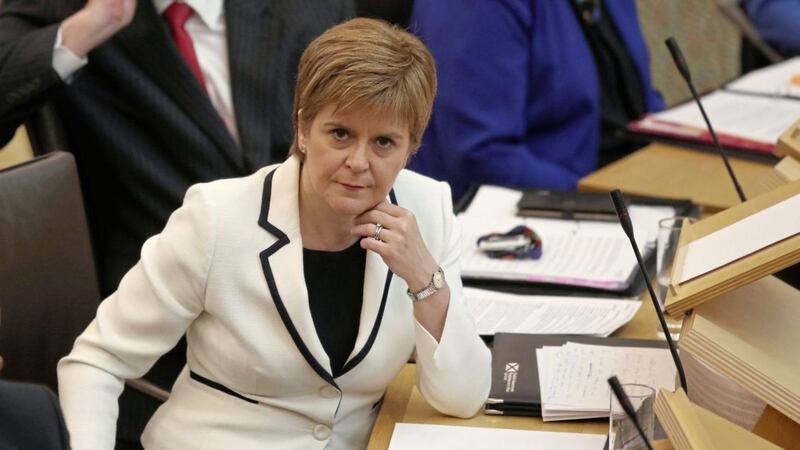If you think the politics of this place is rancorous, spare a thought for Scotland, currently in the throes of an election coming to a head next month.
There are big reputations at stake and, some say, the future of the United Kingdom itself.
Now seen as the natural party of government, the SNP has a reputation for ruthlessness. Until recently the party machine was all-powerful, managing its members with iron-fist efficiency. Leader Nicola Sturgeon has – in spite of some evidence to the contrary – the aura of competence.
Scotland’s Covid performance has been little better than the rest of the UK, but her stellar communication skills have instilled confidence (in contrast to the cackhanded performances of Johnson in England and Foster-O’Neill here).
But the SNP tower has been shaken by a deep rift within its ranks between those who support her gradualist approach to independence; and adherents of her disgraced predecessor, former first minister Alex Salmond.
In a highly competitive field, there are fewer bigger egos than Salmond’s. Now leader of a new nationalist party – Alba – the electorate’s verdict will seal Salmond’s fate. Known as a betting man, surely even he realises his party hasn’t much of a chance.
Sturgeon could sustain the election of a few Alba MSPs, but if Salmond makes it back into the Scottish Parliament – he will be a thorn in her side, though he is more than capable of pushing the self-destruct button.
Salmond and Sturgeon are in one ring of the circus. But two other players also have reputations to win or lose. Both lead parties which have been eclipsed by the SNP, and both are new leaders with a lot to prove.
The most recent is Anas Sarwar, a former Labour MP who fell victim to the SNP surge in 2015. Labour, once the dominant force in Scottish politics, is now a bit player. It is not even the official opposition in the Scottish parliament. Bravely, Sarwar has chosen to contest Glasgow Southside – meeting Sturgeon head on in the constituency she has represented since 2011. With Labour already on the back foot, a poor performance will kill Sarwar’s leadership before it has begun.
The second aspirant is Douglas Ross, newly installed as leader of the Scottish Conservatives after a coup which unseated his predecessor, Jackson Carlaw. Currently led in the parliament by the charismatic Ruth Davidson (shortly to become a baroness), Ross triple-jobs as a Tory MP and a football referee.
So toxic is Tory leader Boris Johnson to Scottish voters, that he has been banned from campaigning in Scotland by his own party. (Further cementing the impression that he is prime minister of England alone.)
Ross does not have the guile nor elan of Davidson - nobody likes a ref. His reputation is shot if the Tories lose their position as second-biggest party in the parliament (with just 31 out of 129 seats).
So, political reputations are on the line, but the bigger game in town is the impact on the so-called British Union.
The most likely outcome is a Scottish government headed by the SNP and supported by the Greens. More significantly, there will likely be a majority for Scottish independence, and pressure from Sturgeon for an early referendum.
Johnson has said he will refuse; but to try to do so would be to defy political gravity and further alienate the Scottish electorate.
Scottish independence would – it goes without saying – have an electrifying impact on the politics of Northern Ireland and the prospects for reunification.
There is no question that the skids are under the UK. This week’s Economist leads on “The perilous state of the union”. It says: “Johnson was elected prime minister to ‘get Brexit done’. In carrying that out, he has endangered his country’s integrity.”
It’s not only Brexit. The fault-lines are social, cultural and economic too.
And times are changing. With the death of Prince Philip it is clear that his widow, Queen Elizabeth, is pretty well the only thing holding the country together. She celebrated her 95th birthday yesterday, and while nobody would wish her ill, the writing is on the wall for this second Elizabethan era.
Johnson’s Britain – typified by warm beer, cricket on the village green, and the strains of Rule Britannia – doesn’t cut it for the Scots, the Welsh nor the Irish. When Scots go to the polls in a couple of weeks and reject his Britain, they will not just be speaking for themselves.
Oh, and Happy St George’s Day by the way. The dragon is about to get the upper hand.









